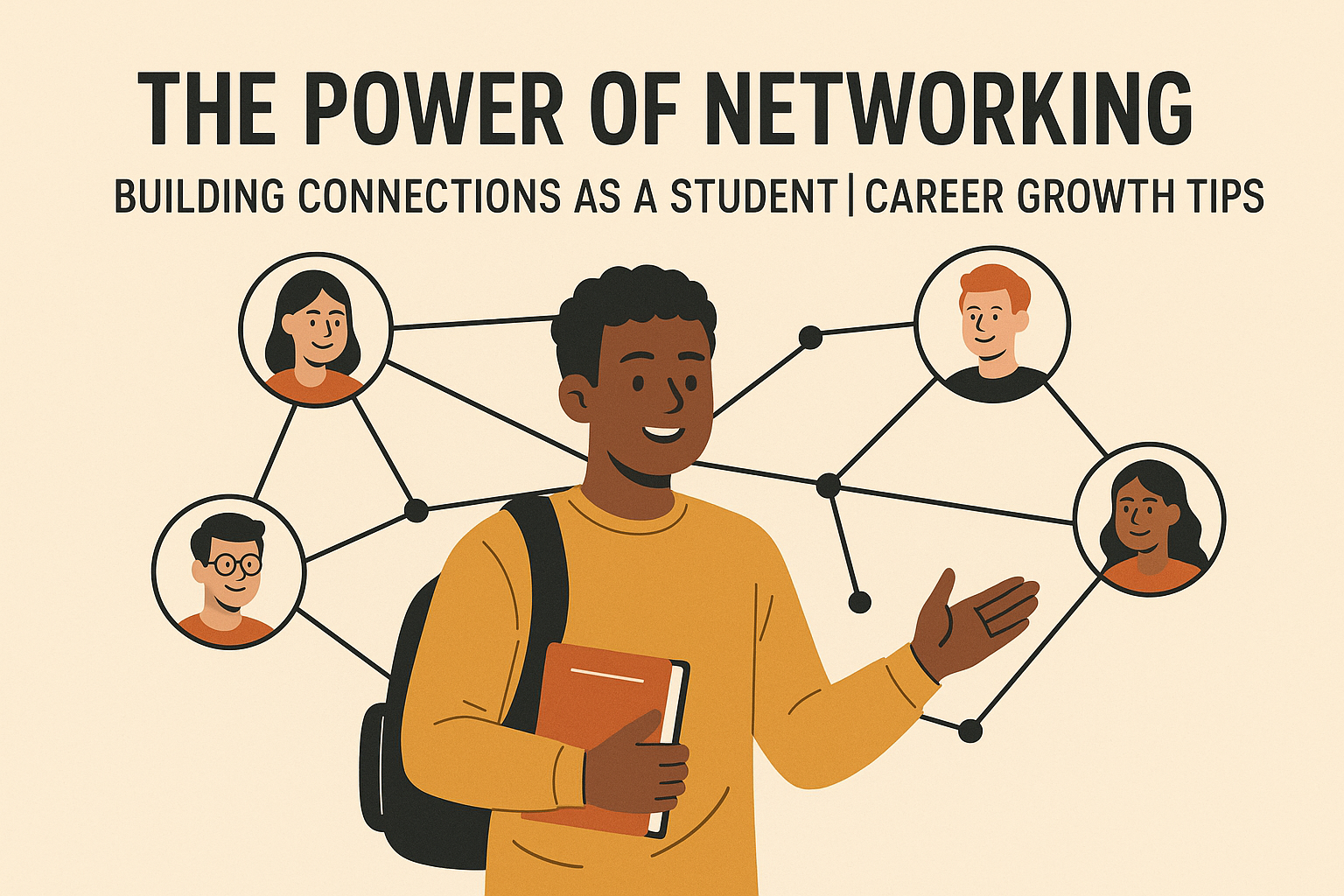


Last updated on: October 29, 2025
4 Views
Yuvika Rathi
College Student

Networking isn’t just for professionals in suits—it begins the day you decide to shape your future.
As a student, every person you meet—classmates, professors, alumni, or industry guests—can become a connection that influences your career path.
Today, recruiters and hiring managers look beyond degrees. They look for referrals, collaborations, and connections. Learning how to network early gives you access to opportunities that are often never advertised publicly.
Networking isn’t about collecting phone numbers or LinkedIn profiles. It’s about building genuine relationships based on mutual growth, respect, and shared interests.
Good networking means adding value to others, not just asking for favors.
According to LinkedIn’s Global Talent Trends Report 2024, over 70% of professionals were hired through connections or referrals rather than cold applications.
https://www.linkedin.com/business/talent/blog/trends/global-talent-trends
This proves that the strength of your network often matters as much as your qualifications.
Your college is your first professional ecosystem. Take advantage of:
Many successful graduates credit their early professional networks to campus experiences.
Explore how universities foster student networking:
Networking in 2025 isn’t limited to handshakes—it thrives online.
Create and optimize your LinkedIn profile early:
You can also explore platforms like:
Being visible online is now part of professional networking.
Instead of waiting for recruiters to find you, reach out to people doing what you want to do.
Request short 15-minute “informational interviews” to learn about their career path, skills, and advice.
A simple, respectful message like:
“I admire your work in [field]. As a student exploring this area, could I ask you a few questions about your experience?”
This builds authentic professional relationships and may lead to mentorship or referral opportunities later.
Harvard Business School’s guide on informational interviews:
https://career.hbs.edu/resources/informational-interviews
Look beyond your college gates. Attend:
Networking face-to-face helps you stand out in memory—something online messages can’t always achieve.
For instance, AIESEC India provides networking opportunities through student exchange and leadership programs:
Your personal brand is how people perceive you when you’re not in the room.
As a student, you can start by:
A strong online presence amplifies every networking effort.
Learn how to build a student brand:
https://www.topuniversities.com/blog/how-build-your-personal-brand-student
It’s better to have 10 meaningful connections than 1000 random ones.
Follow up after meeting people:
Networking is an ongoing relationship, not a one-time exchange.
When students actively network, they gain:
According to a Forbes career report, networking is responsible for up to 85% of job placements worldwide.
That’s why the earlier you start, the better your professional advantage.
Networking is not manipulation; it’s collaboration.
When you connect with people genuinely—sharing ideas, helping others, and staying curious—you create a network that will support you for years to come.
As a student, your network is your career accelerator. So, start conversations, stay authentic, and remember—your future success is often just one connection away.
Further Reading: